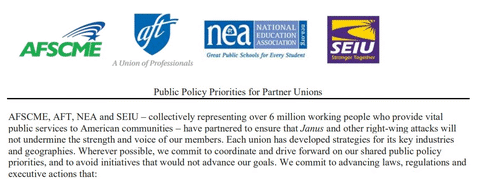Michigan lawmakers have not tried to solve union ‘free rider’ problem
One in three bills in Michigan in 2023 has been labor-related. None try to solve a long-claimed problem. Why?
One in every three bills submitted in Michigan this year has been labor-related. Yet none of them, zero, address the “free-rider” problem unions cite in right-to-work states.
The union argument is this: If people are represented by the union, but not required to pay it, they are free riders on its services.
Why, then, the lack of legislation correcting that problem? Not a single Michigan lawmaker has submitted a bill allowing nonpaying workers to disconnect entirely from the union.
Of the 88 bills submitted in the 102nd Legislature, 29 are labor-related.
Labor bills that have been submitted instead include:
- House Bill 4233 would remove the prohibition against labor unions assisting in collecting dues from public school employees.
- House Bill 4235 would make union dues tax refundable. Michigan taxpayers would be on the hook for their neighbors’ union dues.
- House Bill 4240 would prohibit an employer from looking into a job applicant’s credit score.
- Senate Bill 5 would require an agency fee for nonunion members.
- Senate Bill 142 would require written job descriptions at firms with more than five employees.
Why would lawmakers leave a glaring problem unaddressed?
A 2018 memo on public policy priorities, co-authored by the AFSCME, AFT, NEA and SEIU labor unions, sheds light. The joint memo considers it counterproductive to solve the free-rider dilemma.
In the eyes of the union, to leave free-riders to negotiate for themselves is to break the union’s right to exclusive representation.
Steve Delie, director of the Workers For Opportunity initiative at the Mackinac Center, argues that unions don’t want to solve the free-rider dilemma.
“What they want to do is have the free rider problem be a cudgel that they can use to bully people into the union and to pay dues and to get rid of right-to-work,” Delie told CapCon.
While private sector opt-outs would take a change in federal law, “solving the free-rider problem in the public sector is relatively easy,” Delie said.
“You just do it.”
Michigan Capitol Confidential is the news source produced by the Mackinac Center for Public Policy. Michigan Capitol Confidential reports with a free-market news perspective.




 Steelworkers Union hit with unfair labor practice charges by Viking Corporation employee
Steelworkers Union hit with unfair labor practice charges by Viking Corporation employee
 MEDC gave $248M to more than 180 nonprofits
MEDC gave $248M to more than 180 nonprofits
 Hydra-Lock employees vote to decertify their union
Hydra-Lock employees vote to decertify their union